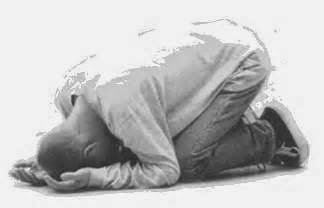Praying in the Heat and the Hurt: Psalm 90.13-17 (NKJV)
[I presented this at the Capitol Bible Study on 18 June 2014]
Praying in the Heat and the Hurt: Psalm 90.13-17 (NKJV)13 Return, O Lord!
How long?
And have compassion on Your servants.
14 Oh, satisfy us early with Your mercy,
That we may rejoice and be glad all our days!
15 Make us glad according to the days in which You have afflicted us,
The years in which we have seen evil.
16 Let Your work appear to Your servants,
And Your glory to their children.
17 And let the beauty of the Lord our God be upon us,
And establish the work of our hands for us;
Yes, establish the work of our hands.Long ago I committed this portion of Psalm 90 to memory. I have used it repeatedly when the heat and hurt of life has been fairly hefty. I have utilized it in praying for congregations where I have pastored, specifically when they were going through tough times. And I have employed this Psalm portion when problem periods have pressed in on my family.
Here are some short reflections on this passage. My hope is that this little foray into Psalm 90.13-17 will encourage you – especially in prayer:
Psalm 90 is the first Psalm in Book Four of the Psalter, and it is attributed to Moses. The whole Psalm has the smell of years of wilderness-wanderings; with all of its trampled hopes, deflated dreams, and gutted anticipations. And then comes the request of v.13-17, with all the gritty reality, dusty tears, and parched exhaustion standing behind it.
- V.13 is the cry of one who feels deserted by Israel’s God. For you to feel, at times, as though God is far away, out of reach, is not unusual. Even our Lord Jesus cried out on the cross: “Eloi, Eloi, lema sabachthani” (Mark 15.34)? There is a subtle air of desperation, but it is a desperation tinged and tinted with faith, “Return…How Long? …have compassion.”
- V.14 the gaze of the praying person turns to the longed-for dream; that the God of Abraham, Isaac and Jacob would come and give “beauty for ashes, the oil of joy for mourning, the garment of praise for the spirit of heaviness” (Isaiah 61.3). That God would reach out his compassionate hand, taking our downcast faces and turn them toward his that we may gaze again on the one who is truly our greatest joy and good.
- V.15 acknowledges that in God’s providential care, the grief and gloom and heartbreak and hardship are in some way from God. And the prayer asks for an equal portion of goodness and gladness to offset the other. In the words of William Cowper, “Judge not the Lord by feeble sense, But trust Him for His grace; Behind a frowning providence He hides a smiling face” (“Trinity Hymnal,” #128).
- V.16 the sacred song-writer further asks the LORD to make his refreshment and restoration obvious and observable, not only to us adults, but even to our children. Often we forget that our children, older or younger, suffer right along with us, though they may not be able to define what it is they are feeling or experiencing.
- V.17 ends the prayer desiring God’s glory and our good. Behind “beauty” is the Hebrew word no’am which has a rich meaning of “loveliness, pleasantness, delightfulness, kindness, favor.” Therefore, you will see it translated in different ways in various Bible versions. But the sense remains; the praying person wants Adonai Eloheynu (“the Lord our God” – notice the identifying “our”) to shower his beautiful favor, his delightful kindness on his troubled people. And while doing this that he would then establish our work. Thus v.17 wraps up where faith flourishes best: with God’s glory and our good.
Take up Psalm 90.13-17 as your prayer in the heat and the hurt. Use this portion when praying for your family during times of sustained suffering. Engage this prayer as you intercede for your congregation as she stumbles and bleeds and groans through prolonged seasons of difficulty. Return to these verses often as you wade through your own chronic afflictions. In doing this you are identifying with the Lord Jesus who is identified with us: “a man of sorrows, and acquainted with grief; and as one from whom men hide their faces he was despised, and we esteemed him not. Surely he has borne our griefs and carried our sorrows; yet we esteemed him stricken, smitten by God, and afflicted. But he was pierced for our transgressions; he was crushed for our iniquities; upon him was the chastisement that brought us peace, and with his wounds we are healed” (Isaiah 53.3-5). But you will also be voicing God’s own words back to him and so you will be disburdening your cares “into the bosom of God, in order to derive comfort from Him” (John Calvin, “Commentary on the Psalms,” Psalm 88.9). See here the compassionate tenderness of God, for he has given you words to use when your groanings are unutterable and inexpressible!
I invite you to absorb this Psalm portion while praying in the heat and the hurt.
(Revised 18 June 2014)Mike




Comments
Natalie